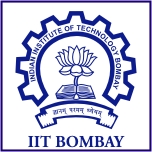

Advanced Manufacturing
Processes Lab (AMPL)
Processes Lab (AMPL)
AMPL

Welding Processes
Introduction to welding processes & technology: joining, fusion welding, solid state welding, mechanical joining, gas welding, electric arc welding, laser welding and electron beam welding. Fundamentals of fusion welding processes: heat source, analysis of heat flow in welding, fluid flow in melt pool and types of metal transfer. Chemical reactions in welding: gas-metal reactions and slag-metal reactions. Microstructure evolution: solidification mechanisms, effect of cooling rate, grain growth at fusion zone and fusion boundary, heat affected zone. Application: types of weld joint, residual stresses, distortion and fatigue, welding defects, destructive and non-destructive testing of welds.
Solid State Joining
Mechanisms of solid state joining: thermo-mechanical processing of metals and metal-alloys, diffusion in solids and adhesive models. Deformation based joining processes: cold/pressure welding, roll bonding, friction welding, friction stir welding, ultrasonic welding and explosive welding. Diffusion bonding and adhesive bonding. Joining of dissimilar materials. Analytical and numerical modelling of solid state joining processes.
Manufacturing Processes II
Material removal processes: mechanics of machining, tool geometry and materials, chip formation, tool temperature, tool wear, tool life, surface finish, machinability. Optimization of machining processes. Machine tools: generation of surfaces by machining, basic operations on shaping, slotting and planning machines, lathe, drilling and boring machines, and grinding machines. Process parameters and setups. Production machines: Capstan and turret lathes, automats, broaching machines, centreless grinding machines. Special purpose machines for thread cutting and gear cutting (hobbing and shaping). Finishing processes honing, laping burnishing and deburring. Introduction to modern machining processes: EDM, ECM, LASER, Jigs and fixtures, principles of location and clamping, synthesis of simple jigs and fixtures. Principles of assembly engineering, theory of dimensional chains, fully interchangeable and selective assembly. Introduction to Numerical Control.
Heat Transfer and Metrology Lab
Part A: Heat Transfer Determination of the thermal conductivity of a material in granular form. Determination of the total hemispherical emissivity of a surface by two methods. Study the natural convection heat transfer from a vertical tube. Study the performance of a pin fin under natural and forced convection conditions. Heat transfer through circular tube with uniform heat flow. Measurement of the forced convection heat transfer coefficient in cross-flow over a circular tube. Study the performance of a double-pipe heat exchanger under parallel and counter flow conditions. Part B: Metrology Measurements of lengths, angles, flatness, squareness, parallelism, alignment, surface finish, and errors in gears and screw threads.
Manufacturing Practice Lab
Manufacturing and fitting of a machine subassembly according to given specification by groups of students.
Materials Processing and Simulation Laboratory
Hardware and Simulation experiments in Metal forming, welding, casting and Machining Laboratories.
Engineering Graphics & Drawing
Introduction to engineering drawing and orthographic projections. Projection of points and straight line. Projection of planes and solids. Projection of simple machine elements. Development of surfaces. Intersection of surfaces. Construction of isometric views from orthographic projections.
Communication Skills
Context of communication: Recognizing our capability androles as professionalsScientific Method: Question and answer aspects oftechnical communication; Scientific Methodology and itsrelationship to technical communication;Surveying literature: Categories; reading and organizingscientific literature; search engines and tools.Listening and Note taking: 5-R method and mind-mapping.Technical writing: Report organization; Journal selection;Introduction, conclusion, and abstract writing.Speaking & Presentation skills: Organization ofpresentation slides (number, content, and formatting); Oralpresentations; Audience/context dependent practices; Nonverbal aspects: body language, eye-contact, personalappearance, facing large audience.Elevator pitch: Pitches for technical audience and policymakersWorkplace communication: Sensitivity towards genderand diversity; Email communication and netiquettes.Ethics in academic communication: Intellectual Property,copyrights and plagiarism; Authorship; Data ethics; Biasesand balanced criticism of literature;Suggested additional topics relevant to disciplines: Datarepresentation, Group discussion and interviews; accessiblescientific writing, report writing using LaTeX, Proofreading, etc.
Manufacturing Processes 1
Casting processes: dispensable and permanent mould processes; analysis of melting, pouring and solidification phenomena; design of pattern, core, feeder and gating system; casting defects and inspection. Joining processes: fusion and solid-state welding; brazing and soldering; weld joint design, cooling rate, and joint properties; welding defects and inspection. Bulk and Sheet Forming processes: rolling, forging, extrusion and drawing; sheet metal working; forming limit diagram; loads, friction and lubrication; forming defects and inspection. Powder processing: Powder manufacture, characterization, compaction and sintering; metal injection moulding; hot and cold isostatic pressing. Polymers and Composites: Thermoplastics, thermosets, elastomers and composites; related processes; injection mould design; moulding defects and inspection. Advanced processes: Free form fabrication (rapid prototyping), and net shape manufacturing processes.